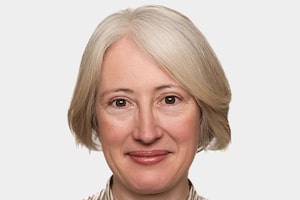Frances Woolley is an associate dean and professor of economics at Carleton University.
----------
It doesn't matter who you are or what you look like. Old and young, rich and poor, fat and thin, black and white – McDonald's (mostly) gives standard service. Everyone is greeted the same way. Everyone pays the same price for their burger. The fast-food company's success is predicated on giving reliable, uniform service; discriminating against consumers is generally bad for business.
Not all companies operate like this. You can't just log onto AirBnB and book a room. "Hosts" take up to 24 hours to vet potential "guests" – to choose whether or not this customer is someone they wish to serve. Despite this, AirBnB, like Uber and the rest of the "sharing economy," is growing exponentially. The question is, why?
For decades it has been possible to share rides by hitchhiking or through ride boards. Staying in another person's home has always been cheaper than staying in a hotel. Why didn't sharing-economy companies emerge before?
What has, historically, hindered the growth of the sharing economy is people's inability to trust strangers. Will this stranger rape me if I give him a ride? Will this stranger trash my home?
The real innovation that has made the sharing economy possible is using ratings to create trust. Customers rate service providers; service providers rate customers. A low rating warns others that you may be untrustworthy, so they can choose not to share with you.
The idea of rating might seem fair. People who do bad things, such as making drivers wait or spilling red wine on the carpet, get bad ratings and are punished. Yet once a service starts rating customers, it becomes a bit less impartial; a bit less like McDonald's, where almost everyone receives the same quality of service. Highly rated customers get a ride right away; low-rated customers wait longer.
But taxi drivers have always had to find ways to avoid bad fares and seek out good ones. In the past, drivers have made snap decisions about whether or not to pick up a potential passenger on the basis of that person's appearance – characteristics such as their clothing, age or race. But anyone can get a good rating on Uber by being ready on time and giving generous cash tips to the driver. A world where the people who get rides quickly are those who have earned a high Uber rating seems fairer than one where the people who get rides quickly are those whose skin tone holds the promise of a more generous tip.
But what about AirBnB, which insists that users post a clear, frontal face photo? A photo that reveals a user's age, race and gender?
There is ample scholarly evidence of discrimination in housing markets. Women, people with good jobs and those with the right ethnic origin find it easier to obtain rental accommodation. There is also growing evidence of discrimination in online markets. For example, an experiment by economists Jennifer Doleac and Luke Stein found that online photos made a real difference to the selling price for goods. A used iPod held in a black hand sold for, on average, 11-per-cent less than the same iPod held in a white hand. IPods held in tattooed hands sold for 10-per-cent less than iPods held by the tattoo-free.
The sharing economy puts power in the hands of the people. Unfortunately people can be real jerks. It is easy to criticize McDonald's, and those worker-exploiting, tax-avoiding multinational corporations. But McDonald's makes a substantial contribution to human dignity every day by providing millions of people with good (or good enough) coffee at a reasonable price, free WiFi and a washroom.
 Frances Woolley
Frances Woolley